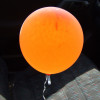This year’s nobel prize for medicine and physiology goes to Svante Pääbo, a Swedish geneticist, for completing the “seemingly impossible” task of sequencing the genome of our extinct relatives, the neanderthals.
But why was it deemed seemingly impossible? Well, for around the last 30,000 years, homo sapiens, which is to say us, have been the only species of hominid left on the planet, meaning any samples of neanderthal DNA, such as bones, would have undergone a lot of degradation. DNA is a resilient molecule but, just like any other, will fall apart given enough time. DNA loses half of its genetic content every 521 years, which meant that any useful material left in 100,000 year old samples would have been sparse at best. This also doesn’t even begin to cover the amount of bacterial contamination that the bones would have gone through in the past few millennia.
那么,再现了尼安德特人的基因组the equivalent of trying to do a billion piece jigsaw, with a blurry reference picture, while most of the pieces are nearly identical. Small wonder, then, that the process took the best part of 20 years.
But, even against such fearful odds, he managed it. Along the way he created and refined several new techniques of repairing and sequencing DNA. He designed ‘clean rooms’ dedicated to handling ancient DNA, which protected his fossils from being contaminated by living humans. And advances in sequencing technology, aided in no small part by the Human Genome project, meant he could decipher the DNA found in ancient bones.
The findings of his work show that, up until 40,000 years ago, we were frequently mixing with neanderthals. Even after 1400 generations, up to 4% of our DNA can be traced back to them. In his own words, they still contribute to what we are today. This knowledge of our genetic makeup can have massive health implications, in fact a paper co-authored by Paabo concluded that the coronavirus caused more severe symptoms in people who had inherited a segment of Neanderthal DNA.. Knowing what we are made up of means we can more effectively understand how best to treat illnesses that have strong ties to our genes.
But by contrast, knowing what parts of us come from our ancestors can also show us what parts of us are unique to homo sapiens, and perhaps highlight what allowed us to become the success story we are today. In the words of Johannes Krause, a palaeogeneticist at the Max Planck Institute for Evolutionary Anthropology: “We’ve never come so close to understanding what makes humans humans.”
Make no bones about it then, Svante Pääbo is the deserved winner of this year's nobel prize for medicine and physiology.
- PreviousCould DART save the world?
- NextRecycling Polythene




Comments
Add a comment